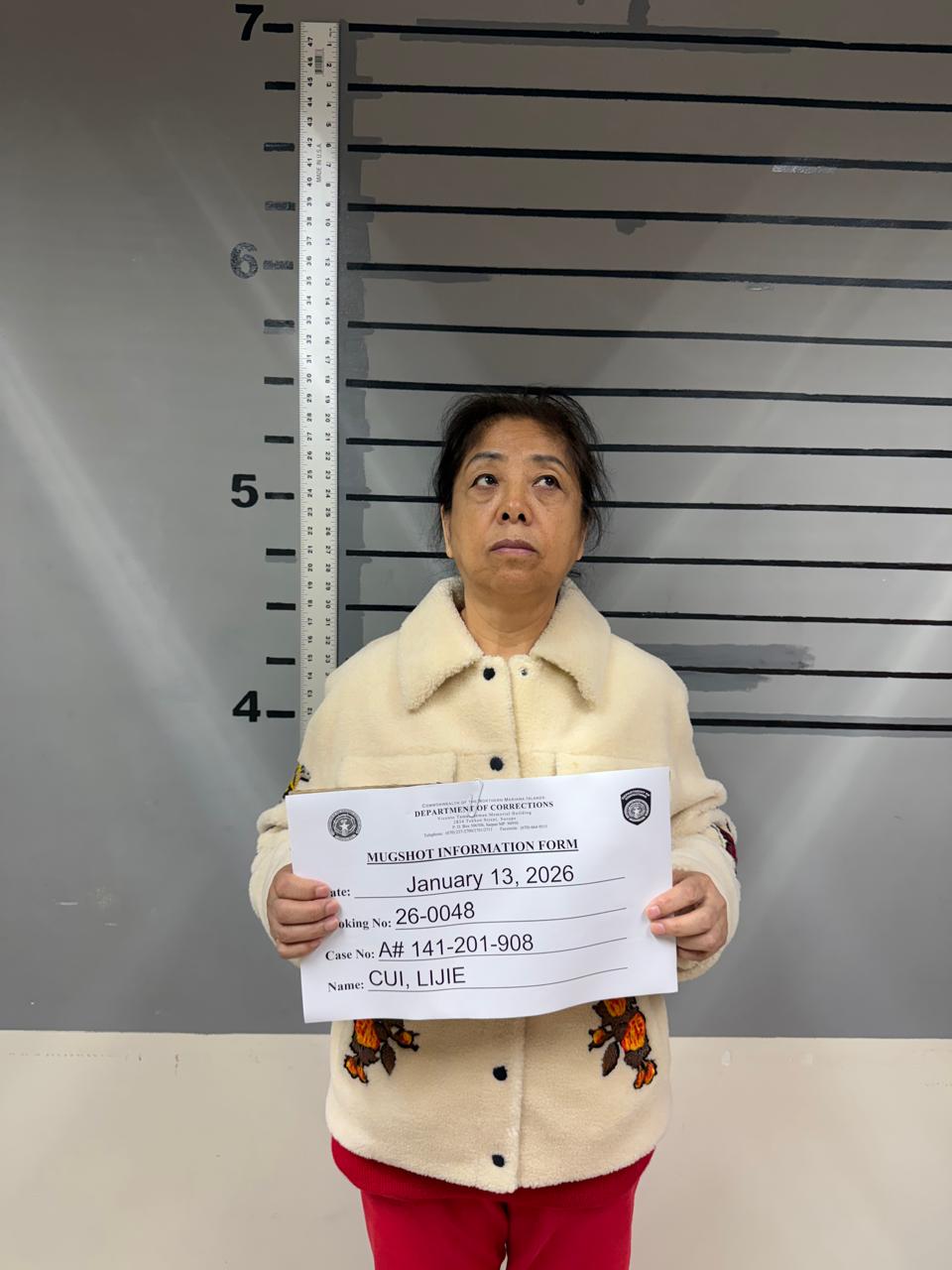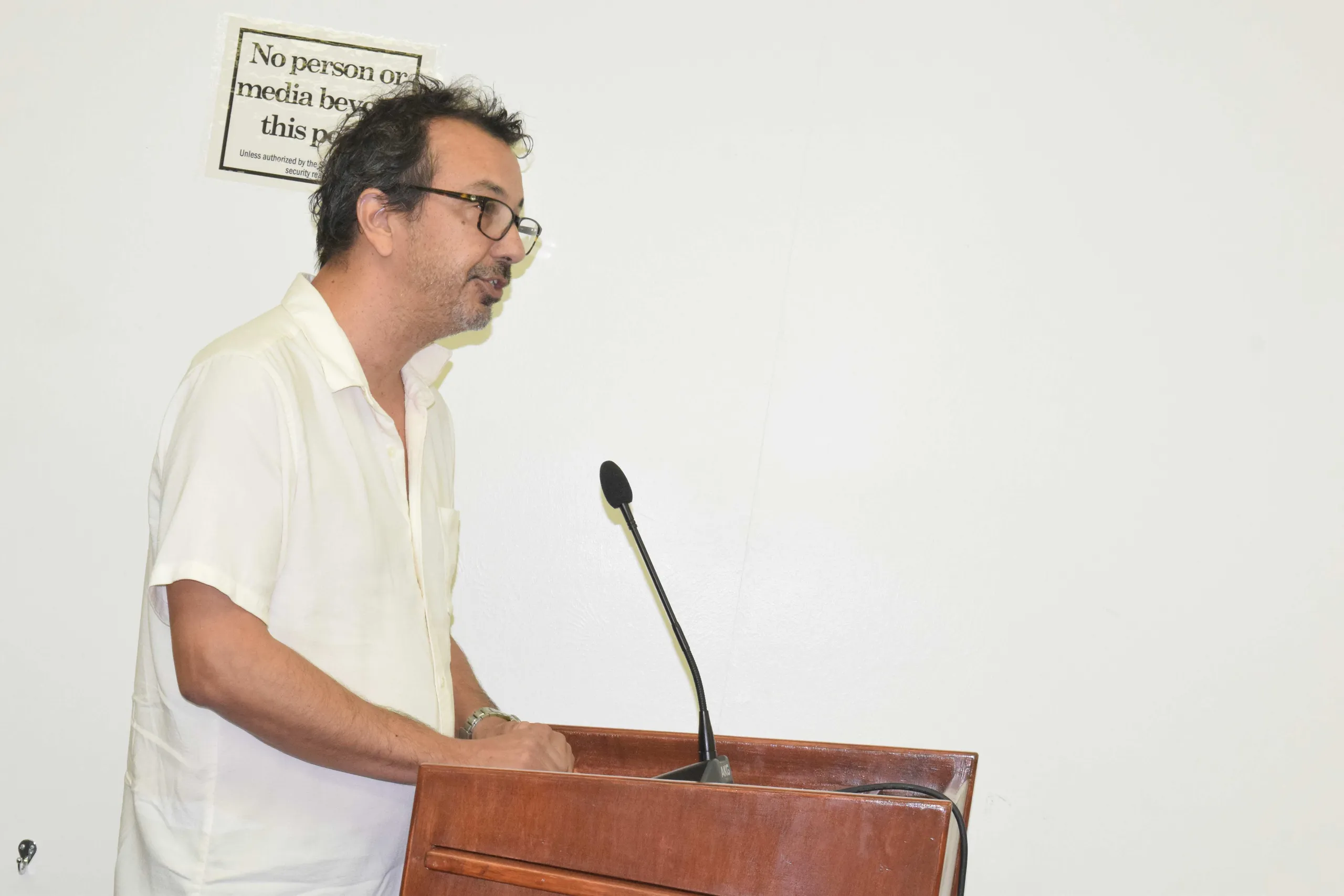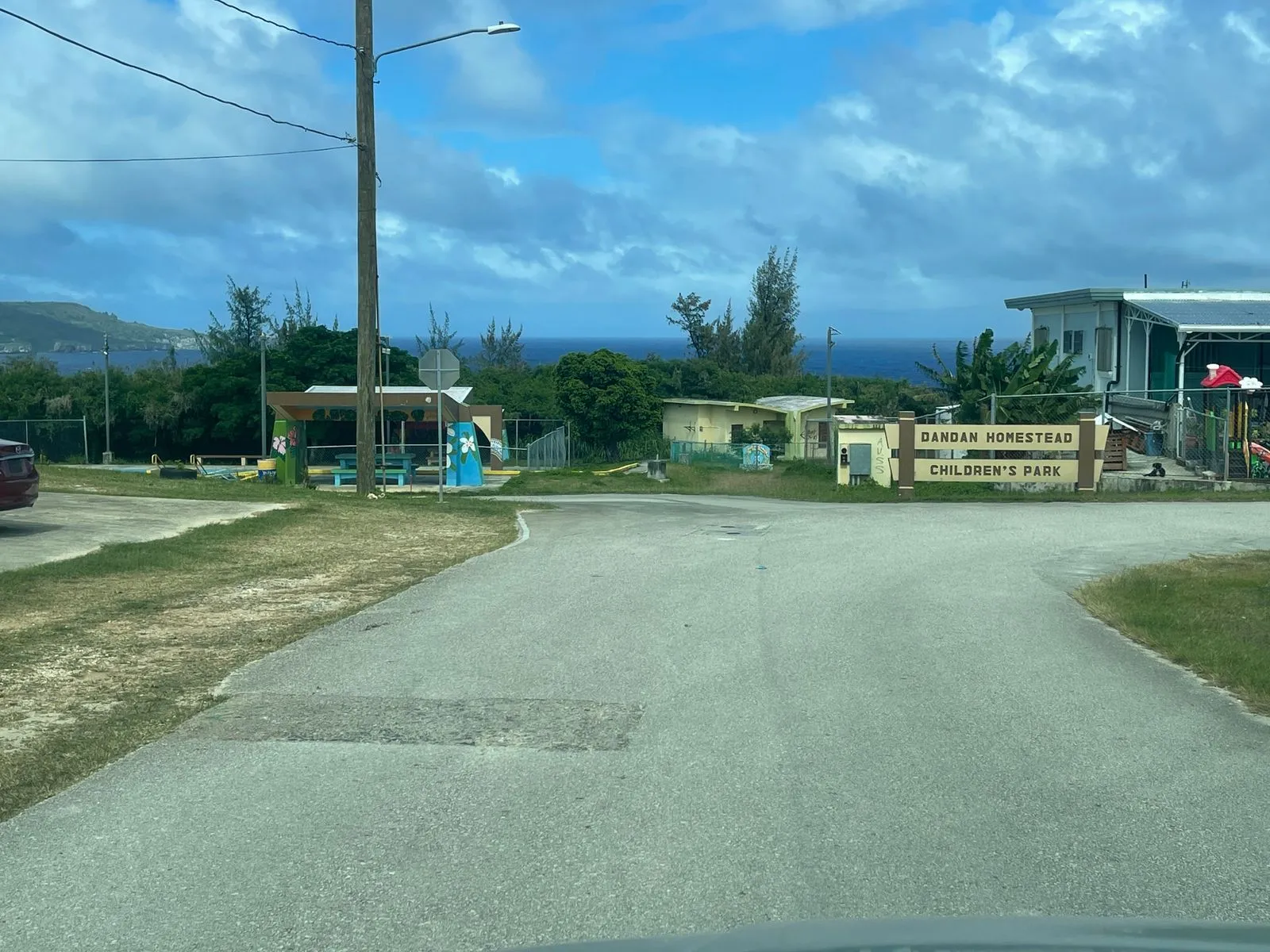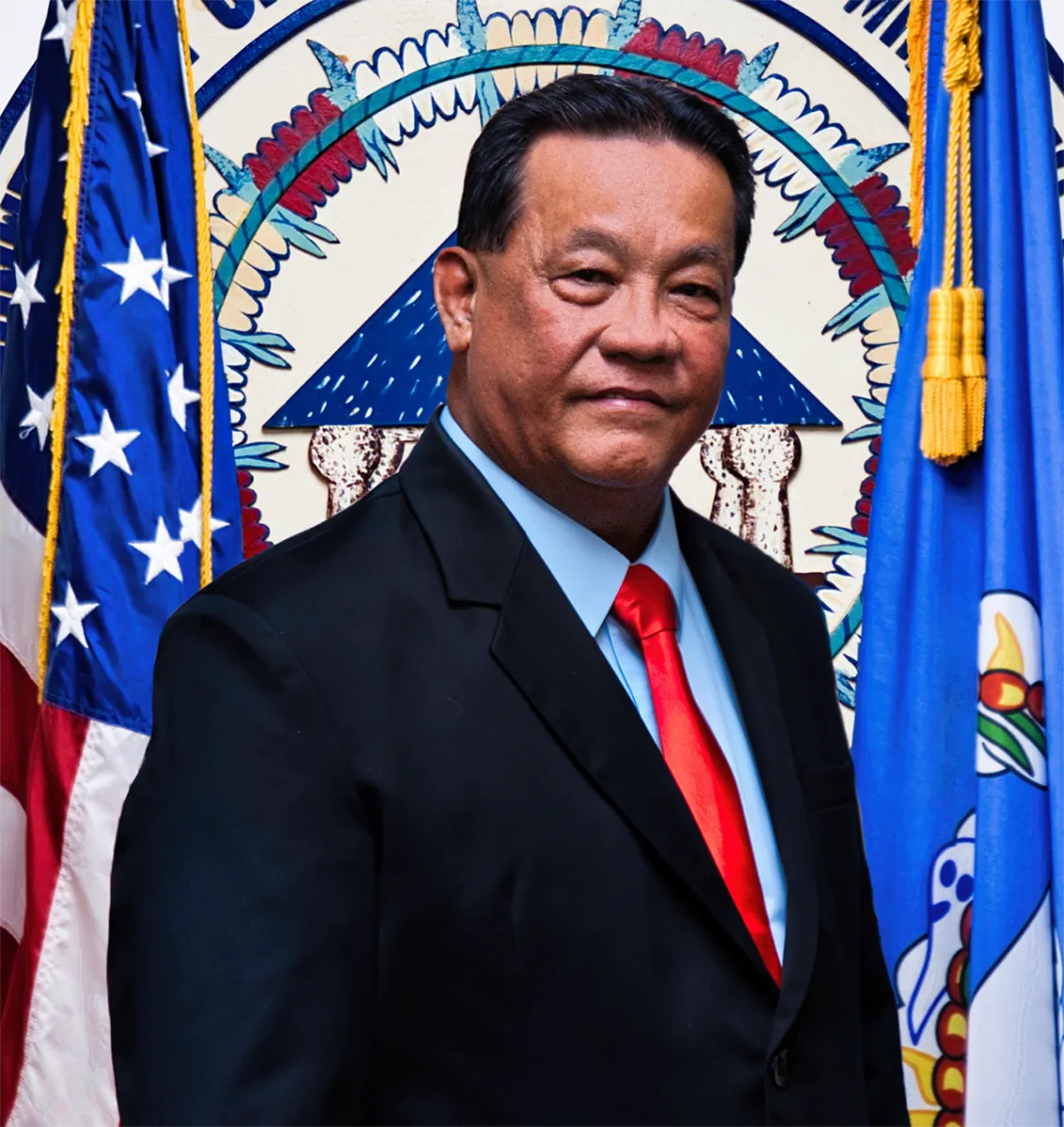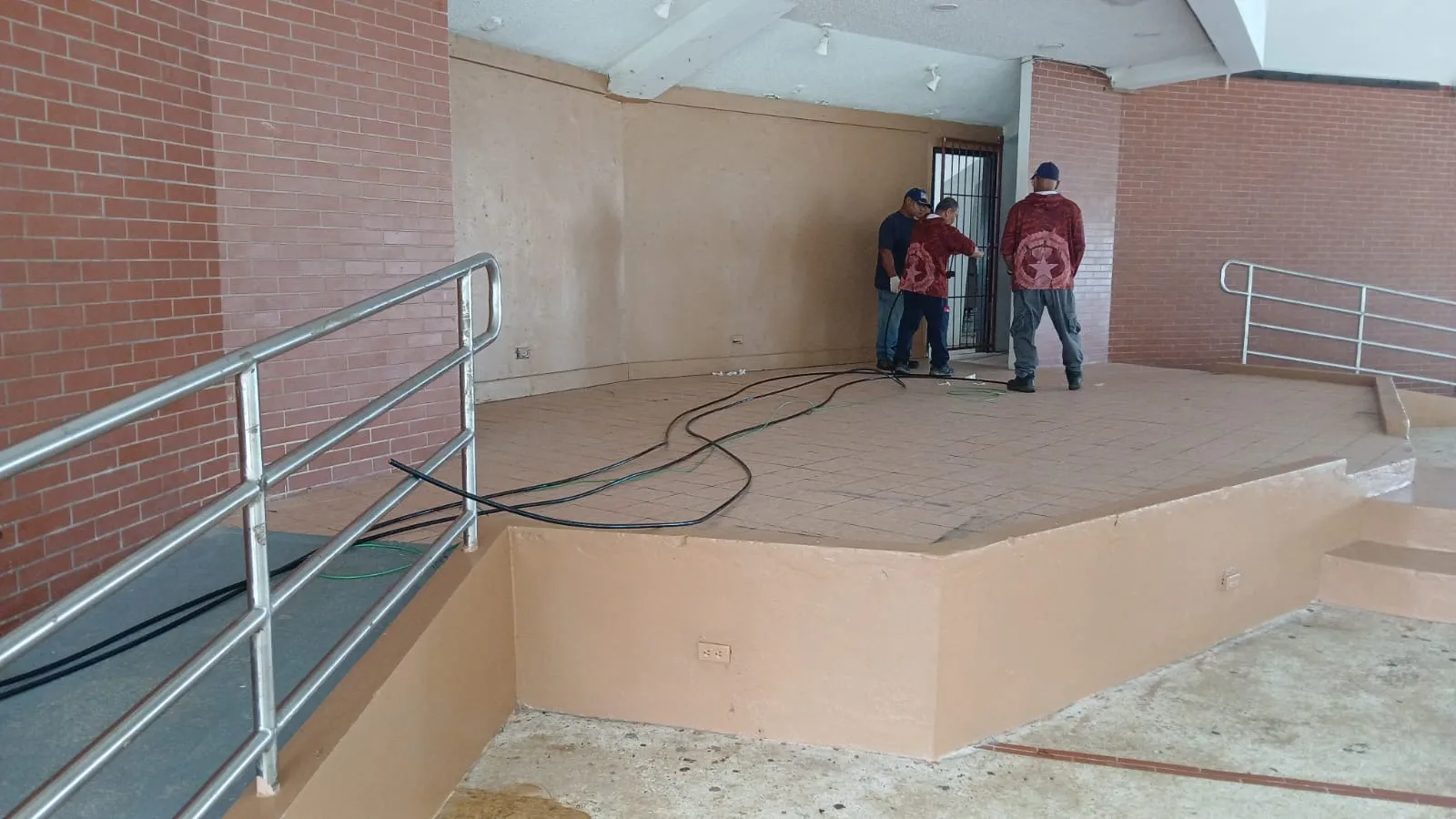
Edward Diaz was a guest speaker at a recent SHRM meeting.
DURING SHRM’s monthly meeting on May 22 at the Pacific Islands Club, CNMI Drug Court Program Manager Edward Diaz urged support for the program’s graduates.
“If there’s one thing I want to accomplish today, it’s to reduce the stigma surrounding our participants. We still feel that stigma exists in the community,” he told members of the Society of Human Resource Management.
Diaz, as well as staff from the Office of Adult Probation Supervision, were the meeting’s special guest speakers.
Diaz said by the time participants graduate from the program, much has been done to ensure their stability and personal accountability.
He said to gain entry into the program, participants should not have committed a violent or sexual offense.
Diaz said that during Phase 1 of the program, Drug Court participants take care of their basic needs, including obtaining identification documents as well as scheduling physicals, eye exams, and dental exams as part of the “stabilization” process.
He said many Drug Court participants do not have IDs or access to basic medical care.
“Some of them have never seen a doctor,” he added.
Diaz said the “recovery capital” model represents a pivot away from purely treatment-based approaches.
He noted that success in treatment can be difficult when basic needs — such as reliable transportation to the treatment center — remain unmet.
In Phases 2 and 3 of the program, once participants are stabilized, they receive individual counseling, group therapy, family therapy, and other support services.
In Phase 4, participants are required to either secure gainful employment or enroll in an educational program before they are eligible to graduate from Drug Court.
Along the way, participants are supervised by Drug Court officers, much like individuals on probation. They may be subject to a curfew, are prohibited from using drugs and alcohol, and are restricted from visiting poker arcades and bars. Participants must also undergo random drug testing three times a week, check in weekly by phone, and may receive home visits, among other requirements.
As part of the graduation requirements, participants must maintain six months of complete sobriety and complete a 40-hour graduation project. Diaz said the project can be any “meaningful” activity — such as adopting a bus stop, writing a book, or building benches for charity.
With the poor state of the economy, Diaz was asked what participants are supposed to do if the private sector cannot hire them.
“We haven’t penalized a participant because they can’t find a job,” he said. “Oftentimes they will be a business owner. There was a participant who opened up a lawncare business. There’s another participant who receives rental income and is also building canoes, and [is into] arts and crafts.”
He said that although no participant has, so far, signed on for remote work through online services, such work can count as gainful employment, so long as it derives income.
Participants are also referred to Department of Labor programs, such as those offered by the Workforce Investment Agency.
Diaz said, in general, participants are eager to return to work. “If we see they’re ready for a job, then they start applying for it,” he added. “We don’t just throw them out there. They’re ready to work when they’ve completed their core treatment.”


